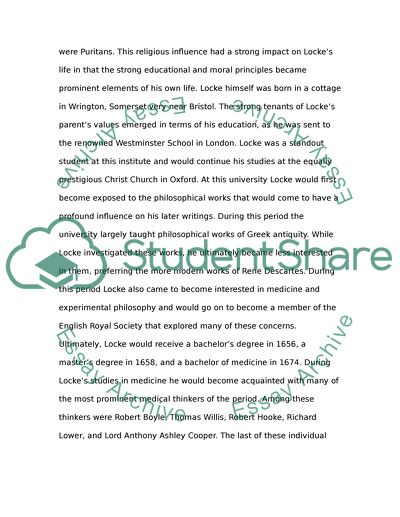Cite this document
(“Philosopher Biography: John Locke Term Paper Example | Topics and Well Written Essays - 1750 words”, n.d.)
Retrieved from https://studentshare.org/philosophy/1428052-philosopher-s-biography
Retrieved from https://studentshare.org/philosophy/1428052-philosopher-s-biography
(Philosopher Biography: John Locke Term Paper Example | Topics and Well Written Essays - 1750 Words)
https://studentshare.org/philosophy/1428052-philosopher-s-biography.
https://studentshare.org/philosophy/1428052-philosopher-s-biography.
“Philosopher Biography: John Locke Term Paper Example | Topics and Well Written Essays - 1750 Words”, n.d. https://studentshare.org/philosophy/1428052-philosopher-s-biography.


